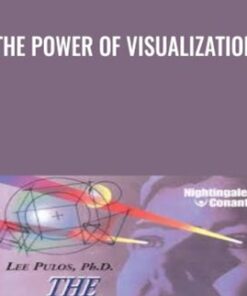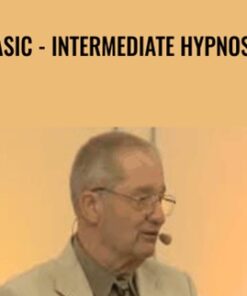Dr Heinz M. Kabutz – Extreme Java – Advanced Topics
Question and Answer
What is this 2-day course,?
this 2-day course, is During we will study over 300 slides of advanced Java topics..
How does this 2-day course, will study?
During this 2-day course, we will study over 300 slides of advanced Java topics.
What is Each major section?
Each major section is is followed by practical hands-on exercises to apply what you have learned..
How does Each major section is followed?
Each major section is followed by practical hands-on exercises to apply what you have learned.
What is experienced Java programmer?
experienced Java programmer is Even the most will be stimulated and challenged..
How does experienced Java programmer will be stimulated?
Even the most experienced Java programmer will be stimulated and challenged.
What is Dr Heinz M. Kabutz -?
Dr Heinz M. Kabutz - is Purchase Extreme Java - Advanced Topics courses at here with PRICE $397 $83 Dr Heinz M. Kabutz - Extreme Java - Advanced Topics.
How does Dr Heinz M. Kabutz - Purchase?
Purchase Dr Heinz M. Kabutz - Extreme Java - Advanced Topics courses at here with PRICE $397 $83 Dr Heinz M. Kabutz - Extreme Java - Advanced Topics
What is this 2-day course,?
this 2-day course, is During we will study over 300 slides of advanced Java topics..
How does this 2-day course, will study?
During this 2-day course, we will study over 300 slides of advanced Java topics.
What is Each major section?
Each major section is is followed by practical hands-on exercises to apply what you have learned..
How does Each major section is followed?
Each major section is followed by practical hands-on exercises to apply what you have learned.
What is experienced Java programmer?
experienced Java programmer is Even the most will be stimulated and challenged..
How does experienced Java programmer will be stimulated?
Even the most experienced Java programmer will be stimulated and challenged.
What is This course?
This course is is ideally suited to the professional Java programmer with at least 2 years experience, who would like to learn how to truly master the Java Programming Language..
How does This course is ideally suited?
This course is ideally suited to the professional Java programmer with at least 2 years experience, who would like to learn how to truly master the Java Programming Language.
What is this course?
this course is Is for you?.
How does this course Is?
Is this course for you?
What is you?
you is If answer "yes!" to any of these questions, then this course is for you: Would you like to learn some advanced techniques for writing Java code?.
How does you answer?
If you answer "yes!" to any of these questions, then this course is for you: Would you like to learn some advanced techniques for writing Java code?
What is you?
you is Would like to understand Java NIO?.
How does you Would?
Would you like to understand Java NIO?
What is you?
you is Would like to understand the intricacies of Java memory, including tips on how to diagnose problems?.
How does you Would?
Would you like to understand the intricacies of Java memory, including tips on how to diagnose problems?
What is you?
you is Have ever wondered what possibilities exist in the reflection API?.
How does you Have?
Have you ever wondered what possibilities exist in the reflection API?
What is data structures?
data structures is Or wondered what would be best suited to your application?.
How does data structures wondered?
Or wondered what data structures would be best suited to your application?
What is better ways?
better ways is Or looked for of managing exceptions?.
How does better ways looked?
Or looked for better ways of managing exceptions?
What is Your Instructor Dr Heinz M. Kabutz Heinz Kabutz?
Your Instructor Dr Heinz M. Kabutz Heinz Kabutz is is the author of The Java Specialists’ Newsletter, a publication enjoyed by tens of thousands of Java experts in over 145 countries..
How does Your Instructor Dr Heinz M. Kabutz Heinz Kabutz is?
Your Instructor Dr Heinz M. Kabutz Heinz Kabutz is the author of The Java Specialists’ Newsletter, a publication enjoyed by tens of thousands of Java experts in over 145 countries.
What is His book “Dynamic Proxies?
His book “Dynamic Proxies is (in German)” was #1 Bestseller on Amazon.de in Fachbücher für Informatik for about five minutes until Amazon fixed their algorithm..
How does His book “Dynamic Proxies was?
His book “Dynamic Proxies (in German)” was #1 Bestseller on Amazon.de in Fachbücher für Informatik for about five minutes until Amazon fixed their algorithm.
What is a supportive mother,?
a supportive mother, is Thanks to he has now sold 5 copies..
How does a supportive mother, Thanks?
Thanks to a supportive mother, he has now sold 5 copies.
What is Heinz’s?
Heinz’s is Java Specialists’ newsletter is filled with amusing anecdotes of life on the Island of Crete..
How does Heinz’s is filled?
Heinz’s Java Specialists’ newsletter is filled with amusing anecdotes of life on the Island of Crete.
What is He?
He is is a popular speaker at all the best Java conferences around the world, and also at some of the worst..
How does He is?
He is a popular speaker at all the best Java conferences around the world, and also at some of the worst.
What is He?
He is teaches Java courses in classrooms around the world, where his prime objective is to make absolutely sure that none of his students fall asleep..
How does He teaches?
He teaches Java courses in classrooms around the world, where his prime objective is to make absolutely sure that none of his students fall asleep.
What is He?
He is is not always successful..
How does He is not?
He is not always successful.
What is Extreme Java -?
Extreme Java - is Advanced Topics.
How does Extreme Java - Advanced?
Extreme Java - Advanced Topics
What is Resources -?
Resources - is Slides & Exercises ExtremeJavaAdvancedTopics-2.0 Slides Exercise Files 1 - Introduction Hello & Welcome (11:45) Java 7 & 8 Primer (7:07) 2..
How does Resources - Slides?
Resources - Slides & Exercises ExtremeJavaAdvancedTopics-2.0 Slides Exercise Files 1 - Introduction Hello & Welcome (11:45) Java 7 & 8 Primer (7:07) 2.
What is Java IO Introduction (1:42) 2.1 -?
Java IO Introduction (1:42) 2.1 - is Object Streams Serialization with the Decorator Pattern (23:11) java.io.Serializable (4:33) Serializing own objects (4:23) Caching of objects (15:18) writeObject() and readObject() (7:59) Versioning of objects (6:18) Exercises (4:07) Exercise Walkthrough: Serialization (18:26) 2.2 - Java new IO Introduction (2:30) Creating buffers (5:00) Little and big endian (7:19) Writing and reading buffers with channels (16:54) Memory mapped files (12:53) Non-blocking IO (0:56) Exercises (1:33) Exercise Walkthrough: MappedByteBuffer (9:33) 3 - Memory Introduction (2:24) 3.1 - Garbage Collection Introduction (1:02) Stack memory StackOverflowError (3:03) Heap management (1:08) Weak generational hypothesis (2:00) Generational spaces (10:10) Stop-the-world (2:24) Heap fragmentation (2:43) Escape analysis (2:33) Pros and cons of GC (3:05) Measuring GC activity (9:51) Exercises (1:47) Exercise Walkthrough: ThreadMemoryTest (11:49) Extra: VisualGC Plugin & Censum (15:47) 3.2 Solving Common Memory Problems Common memory problems (4:31) Memory leaks (2:48) Loitering objects (4:32) Object churn (2:52) Sizing generational spaces (8:16) Exercises (0:30) Exercise Walkthrough: FibonacciCalculator (19:52) 3.3 Finalizers Finalizers (9:53) 4 - Reflection Introduction (12:40) Manipulating objects (9:05) Exercises (2:33) Exercise Walkthrough: MagicClassInstantiator (8:05) Exercise Walkthrough: Deep cloning arrays (14:43) 5 - Data Structures Introduction (4:05) 5.1 Computational Time Complexity Computational Time Complexity (10:21) 5.2 Iteration Iterator (8:58) Copy-on-write collections (4:00) Exercises (2:20) Exercise Walkthrough: TextFile (15:46) Exercise Walkthrough: Files.lines() (5:13) 5.3 Hashing How hashing works (11:23) Hashing - compound keys (10:39) Exercises (1:08) Exercise Walkthrough: Pixel hashCode (8:13) 5.4 Sorting and Searching Sorting lists and arrays (4:04) Natural order with Comparable (6:35) Comparators (12:01) TreeMap and TreeSet (0:57) Exercises (2:22) Exercise Walkthrough: Programmer rich smart (8:46) 5.4 Queues Queues (7:57) Deques (1:38) 6 - Exceptions Introduction (0:53) Error handling (4:34) Best practices (19:42) Assertions (5:44) Exercises (0:56) Exercise Walkthrough: Thread pool exceptions and assertions (8:22) 7 - Dates and Time Zones Introduction (3:34) Time in Java (6:34) Java 8 - JSR 310 (8:37) Exercises (0:49) Exercise Walkthrough: Date formatting horror (5:26) 8 - Logging Everyone likes to write a logging framework (3:07) Overview (7:37) Exercises (0:33) Exercise Walkthrough: Logging thread pool (18:35) Best practices (6:00) Impact on performance (9:15) 9 - Conclusion Where to next?.
How does Java IO Introduction (1:42) 2.1 - writeObject()?
Java IO Introduction (1:42) 2.1 - Object Streams Serialization with the Decorator Pattern (23:11) java.io.Serializable (4:33) Serializing own objects (4:23) Caching of objects (15:18) writeObject() and readObject() (7:59) Versioning of objects (6:18) Exercises (4:07) Exercise Walkthrough: Serialization (18:26) 2.2 - Java new IO Introduction (2:30) Creating buffers (5:00) Little and big endian (7:19) Writing and reading buffers with channels (16:54) Memory mapped files (12:53) Non-blocking IO (0:56) Exercises (1:33) Exercise Walkthrough: MappedByteBuffer (9:33) 3 - Memory Introduction (2:24) 3.1 - Garbage Collection Introduction (1:02) Stack memory StackOverflowError (3:03) Heap management (1:08) Weak generational hypothesis (2:00) Generational spaces (10:10) Stop-the-world (2:24) Heap fragmentation (2:43) Escape analysis (2:33) Pros and cons of GC (3:05) Measuring GC activity (9:51) Exercises (1:47) Exercise Walkthrough: ThreadMemoryTest (11:49) Extra: VisualGC Plugin & Censum (15:47) 3.2 Solving Common Memory Problems Common memory problems (4:31) Memory leaks (2:48) Loitering objects (4:32) Object churn (2:52) Sizing generational spaces (8:16) Exercises (0:30) Exercise Walkthrough: FibonacciCalculator (19:52) 3.3 Finalizers Finalizers (9:53) 4 - Reflection Introduction (12:40) Manipulating objects (9:05) Exercises (2:33) Exercise Walkthrough: MagicClassInstantiator (8:05) Exercise Walkthrough: Deep cloning arrays (14:43) 5 - Data Structures Introduction (4:05) 5.1 Computational Time Complexity Computational Time Complexity (10:21) 5.2 Iteration Iterator (8:58) Copy-on-write collections (4:00) Exercises (2:20) Exercise Walkthrough: TextFile (15:46) Exercise Walkthrough: Files.lines() (5:13) 5.3 Hashing How hashing works (11:23) Hashing - compound keys (10:39) Exercises (1:08) Exercise Walkthrough: Pixel hashCode (8:13) 5.4 Sorting and Searching Sorting lists and arrays (4:04) Natural order with Comparable (6:35) Comparators (12:01) TreeMap and TreeSet (0:57) Exercises (2:22) Exercise Walkthrough: Programmer rich smart (8:46) 5.4 Queues Queues (7:57) Deques (1:38) 6 - Exceptions Introduction (0:53) Error handling (4:34) Best practices (19:42) Assertions (5:44) Exercises (0:56) Exercise Walkthrough: Thread pool exceptions and assertions (8:22) 7 - Dates and Time Zones Introduction (3:34) Time in Java (6:34) Java 8 - JSR 310 (8:37) Exercises (0:49) Exercise Walkthrough: Date formatting horror (5:26) 8 - Logging Everyone likes to write a logging framework (3:07) Overview (7:37) Exercises (0:33) Exercise Walkthrough: Logging thread pool (18:35) Best practices (6:00) Impact on performance (9:15) 9 - Conclusion Where to next?
What is Page Purchase Dr Heinz M. Kabutz -?
Page Purchase Dr Heinz M. Kabutz - is Archive Extreme Java - Advanced Topics courses at here with PRICE $397 $83.
How does Page Purchase Dr Heinz M. Kabutz - Archive?
Archive Page Purchase Dr Heinz M. Kabutz - Extreme Java - Advanced Topics courses at here with PRICE $397 $83
 Complete Course of Astrology - George Bayer
1 × $93.00
Complete Course of Astrology - George Bayer
1 × $93.00 2-Day Neuro-Based Self-Regulation Toolbox For Children and Adolescents
1 × $180.00
2-Day Neuro-Based Self-Regulation Toolbox For Children and Adolescents
1 × $180.00 $200k Book Blueprint Training – Richelle Shaw
1 × $96.00
$200k Book Blueprint Training – Richelle Shaw
1 × $96.00 The Power of Visualization - Dr. Lee Pulos
1 × $13.00
The Power of Visualization - Dr. Lee Pulos
1 × $13.00 Rhode Island Mental Health & The Law - 2020 - Robert Landau & Frederic Reamer
1 × $83.00
Rhode Island Mental Health & The Law - 2020 - Robert Landau & Frederic Reamer
1 × $83.00 10 Dollar Time Bomb VIP – Ben Adkins
1 × $44.00
10 Dollar Time Bomb VIP – Ben Adkins
1 × $44.00 Basic - Intermediate Hypnosis - Gerald Kein
1 × $93.00
Basic - Intermediate Hypnosis - Gerald Kein
1 × $93.00 Loan SUPER Marketing Blueprint (King Khang - Wholesale to Million) - King Khang
1 × $224.00
Loan SUPER Marketing Blueprint (King Khang - Wholesale to Million) - King Khang
1 × $224.00 0-6 Pack Abs Phase 1 &2 - Tyler Bramlett
1 × $17.00
0-6 Pack Abs Phase 1 &2 - Tyler Bramlett
1 × $17.00 1% Better Every Day Strength Building System - Ricky Lundell
1 × $32.00
1% Better Every Day Strength Building System - Ricky Lundell
1 × $32.00 0-100k Case Study from Grant Ambrose
0-100k Case Study from Grant Ambrose
 [BIG Collection Real Estate] Real Estate Web Academy – Great Real Estate Giveaway
[BIG Collection Real Estate] Real Estate Web Academy – Great Real Estate Giveaway
 Albert Aiello – LLC’s To Protect Business Owners
Albert Aiello – LLC’s To Protect Business Owners
 6 Weeks Of Email Income Experts - Jason Capital
6 Weeks Of Email Income Experts - Jason Capital
 Tax-Free Zone Video Course - America
Tax-Free Zone Video Course - America